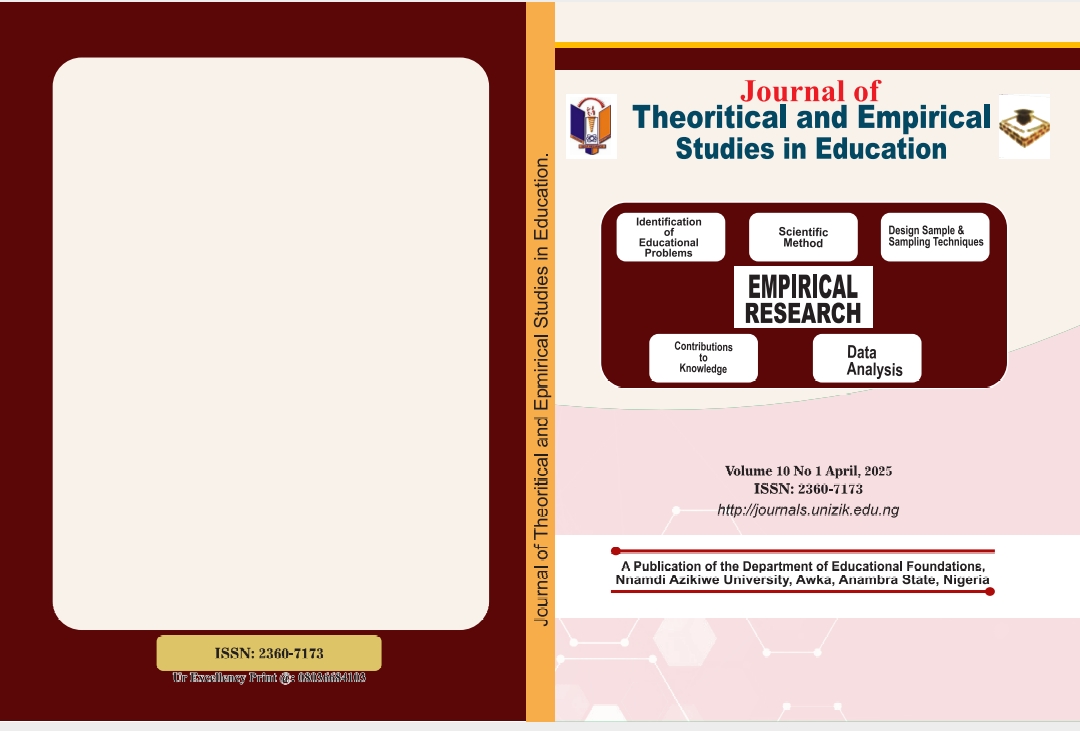Uses of Psychological Coping Mechanisms and Resilience in Curbing Insecurity and Out-of-School Problems in Kogi State, Nigeria.
Keywords:
Psychological, Coping Mechanisms, Resilience, Curbing, Insecurity, Out-of-School Problems.Abstract
In Kogi State, Nigeria, the challenges of insecurity and an increasing population of out-of-school children have created significant socio-economic and educational concerns. This paper examines the roles of psychological coping mechanisms and resilience in addressing these issues, aiming to understand how effective psychological strategies can mitigate the adverse impacts on affected children and communities. The paper explores adaptive coping strategies utilised by children facing educational disruptions, including social support networks, cognitive restructuring, spiritual practices, and creativity. It further reviewed factors contributing to resilience, such as personality traits, positive role models, and community-based interventions that promote emotional well-being and foster long
term adaptive skills. The article revealed that while insecurity and educational instability present profound psychological challenges, children employ diverse coping mechanisms that support their mental health and help them navigate adversities. Resilience emerges as a crucial factor, with support from families, peers, and community initiatives playing a significant role in bolstering children’s ability
to persevere. The paper suggests that targeted interventions such as mental health services, educational opportunities, and empowerment programmes are essential for strengthening resilience among out-of-school children. By fostering these adaptive
traits and coping mechanisms, policymakers and educators can develop comprehensive, culturally sensitive strategies to curb insecurity and reintegrate out of-school children into educational systems, ultimately enhancing their long-term well-being and potential for success.




